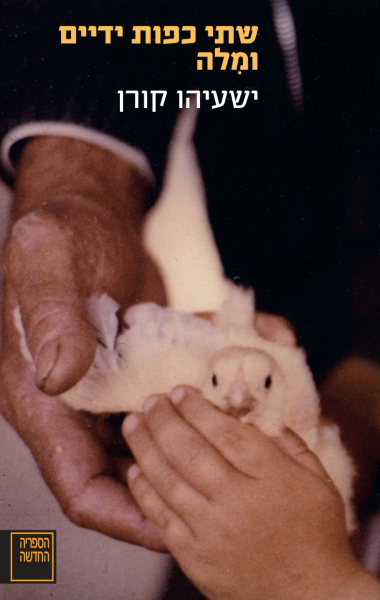
Two Palms and a Word
The main novella unfolds in a small farming town in the second half of the 1940s, a crucial time in Israel’s history. Yulik, a nine-year-old boy, is imaginative, introverted and different from his peers. He is curious about the world, but mainly about his parents, immigrants from Eastern Europe who are trying to survive in a difficult world. Interestingly, the narrator shows little concern for the historic events of the time (although fragments steal in occasionally); on the other hand, he shapes the details of their daily lives with Flaubertian precision. Yulik’s father, a laborer, owns a mule and wagon and makes his living by hauling goods and doing farm work; his more educated mother is drawn to music and books, but has to work plucking chickens to supplement the family income. Yet within their drab existence, they hold on to a vague, silent dream of change and release.
The novella and short stories are written as a series of pictures, in photographic technique. The characters don’t speak much, and Yulik doesn’t explain or interpret, but the reader senses the tensions and understands. We grasp, for example, that his mother travels to Tel Aviv to have an abortion. But the emotional climax of the book comes in the final, autobiographical story. Here, the narrator takes leave of his parents, unifying the stories into a single work whose unspoken title is: love.

-
“ Koren’s stories mature slowly, like fine wine lying in cellars for long years before seeing the light… Superb narrative craftsmanship. ”
-
“ Koren’s book has been given a sweepingly warm welcome in the literary world. There is wall-to-wall agreement about the quality of his prose and the rarity of his unique, modest style. ”
-
“ Refined prose, which has an intense, emotional, heart-searing effect… A wonderful book. ”
